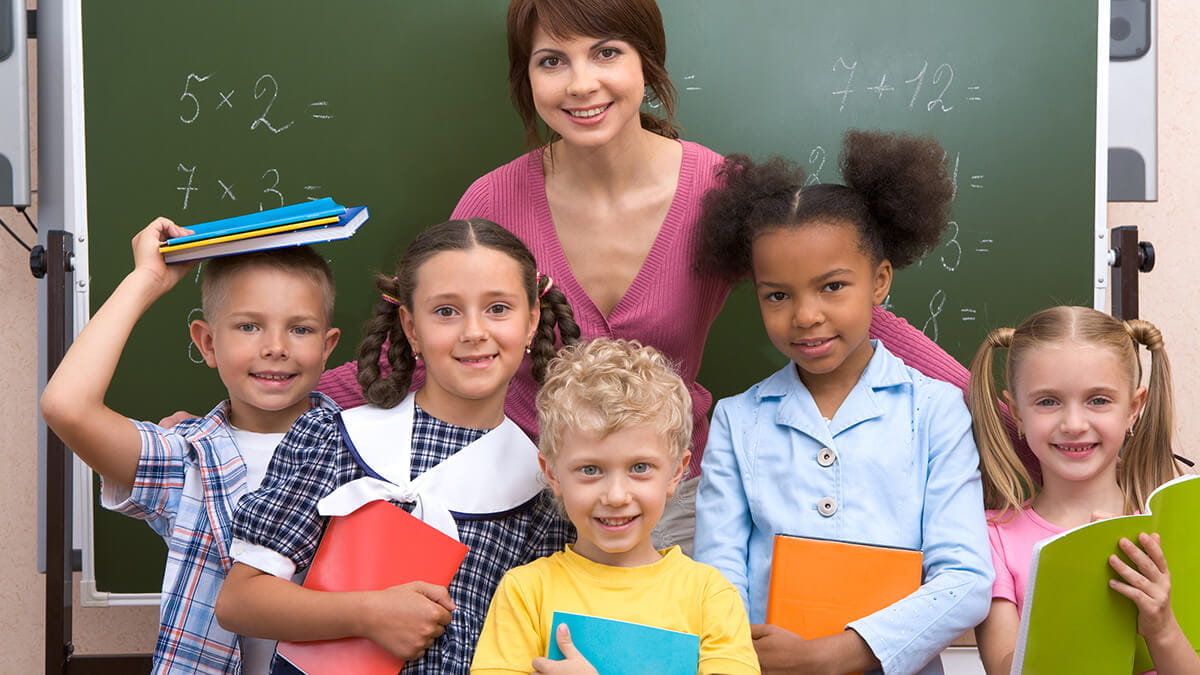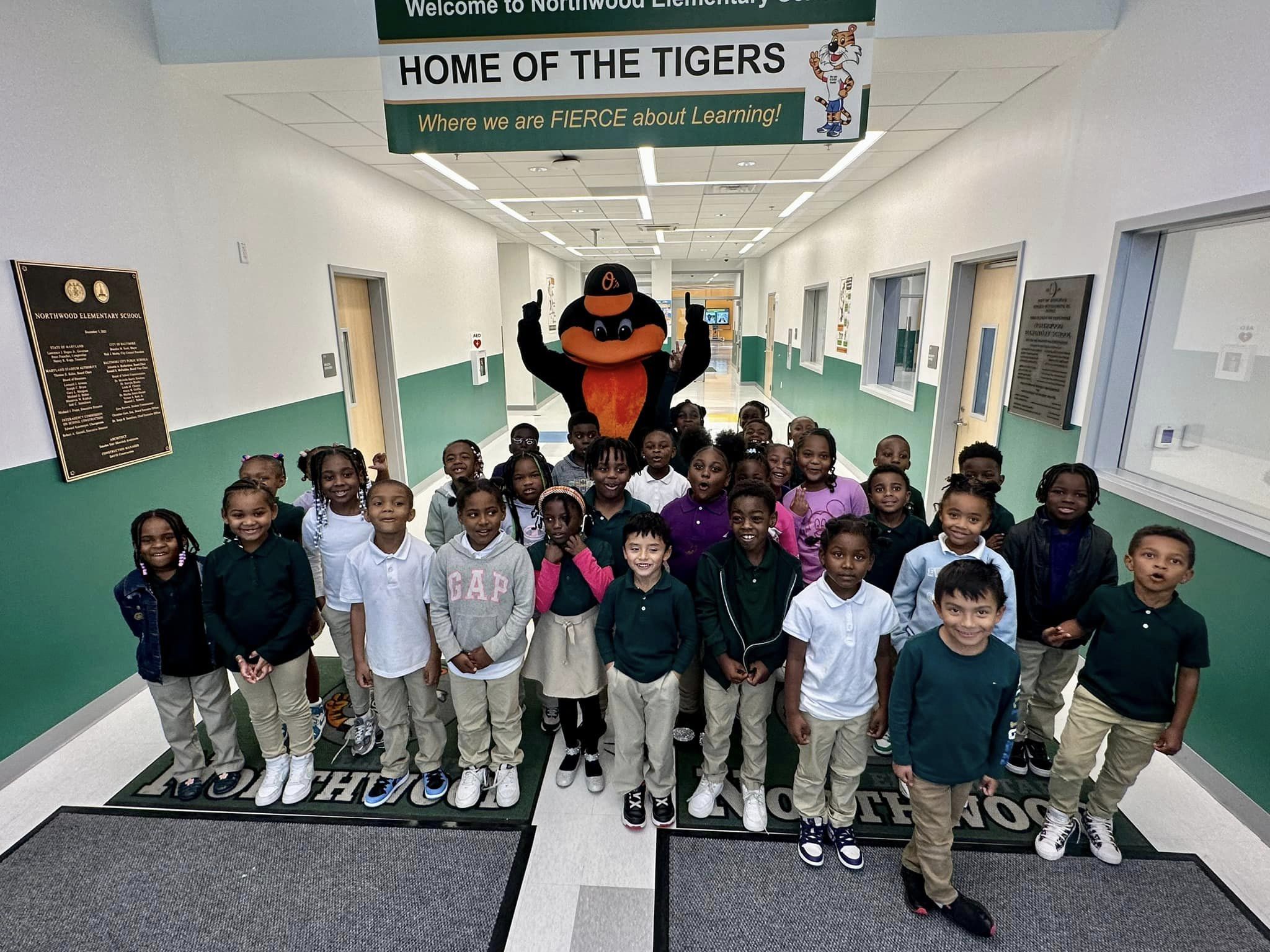Exploring what makes Grade School Peoria special in shaping young learners
All Concerning Preschool: Recognizing the Importance of Early Childhood Years Education Programs
Kindergarten offers as a crucial stage in a child's early advancement. It introduces foundational skills important for future knowing and social communications. Via different activities, children engage in structured play that advertises cognitive growth. Recognizing the subtleties of various kindergarten programs can additionally brighten their relevance. What details benefits do these early education and learning experiences provide, and exactly how do they form a child's trajectory? The answers may be much more intricate than one might anticipate.

The Function of Kindergarten in Youngster Development
Some may see preschool just as a transition phase prior to official education, it plays an essential role in youngster growth. This fundamental phase cultivates critical social, emotional, and cognitive skills that are essential for lifelong learning. In kindergarten, youngsters take part in structured play, which improves their ability to work together, share, and deal with problems with peers. These interactions prepared for healthy partnerships and improved communication skills.
Additionally, kindergarten presents youngsters to standard principles in proficiency and numeracy, sparking inquisitiveness and a love for understanding. Teachers direct trainees with activities that promote analytic and essential thinking, crucial components of intellectual growth. Additionally, the environment highlights regular and framework, aiding children create self-discipline and independence. By concentrating on alternative growth, kindergarten warranties that children are not only ready academically yet likewise socially and psychologically for the challenges of future academic undertakings.
Key Benefits of Early Youth Education
Early youth education provides countless benefits that can significantly impact a youngster's development and future success. Research shows that kids that participate in top quality very early education programs exhibit enhanced cognitive skills, much better language development, and improved social skills contrasted to their peers who do not participate in such programs. These foundational abilities are crucial as they establish the phase for scholastic achievement and long-lasting discovering.
In addition, early education cultivates emotional development by giving youngsters with possibilities for cooperative play and dispute resolution, helping them establish resilience and empathy. Kindergarten. Furthermore, these programs typically aid connect the space for children from diverse backgrounds, making certain fair accessibility to discovering sources and experiences
Eventually, buying very early childhood education and learning not just benefits private kids yet additionally adds to more powerful neighborhoods, as informed people are more probable to engage positively in culture and the workforce.
Various Kinds Of Kindergarten Programs
Various preschool programs cater to different educational philosophies and needs. Full-day options supply extensive understanding time, while the Montessori method highlights freedom and hands-on experiences. Additionally, play-based learning methods foster imagination and social skills, illustrating the diversity in very early childhood education.
Full-Day Kindergarten Options
Numerous moms and dads and educators acknowledge the growing significance of full-day preschool options in early childhood years education. Full-day programs usually supply a more extensive learning experience, enabling kids to take part in a variety of activities throughout the day. These choices commonly consist of a balanced curriculum that integrates scholastic, social, and emotional development. Some areas offer conventional full-day kindergarten, while others may provide specialized programs, such as double language or thematic knowing atmospheres. Furthermore, full-day preschool can accommodate working moms and dads by lining up college hours with regular job routines. Study suggests that pupils in full-day programs commonly demonstrate boosted academic efficiency and social abilities contrasted to their peers in half-day setups, making these options increasingly prominent in lots of neighborhoods.
Montessori Strategy Introduction
Although the Montessori approach is just among several academic philosophies, it has actually gained considerable interest for its distinct emphasis on child-led learning and expedition. Created by Dr. Maria Montessori, this method concentrates on promoting self-reliance and self-directed task in children. Class are commonly created to motivate movement and hands-on engagement with products, enabling youngsters to find out at their very own speed. Montessori instructors serve as overviews, helping with discovering via monitoring instead of direct instruction. This approach focuses on mixed-age class, promoting collaboration and peer understanding. Additionally, the Montessori approach highlights useful life skills and sensory tasks, aiding children create a solid structure in both scholastic and social expertises. Moms and dads usually value the holistic development that this method nurtures in their youngsters.
Play-Based Learning Strategies
Play-based learning approaches are indispensable to numerous preschool programs, highlighting the relevance of play as an essential mode Visit This Link of finding out for young kids. These methods urge expedition, creativity, and social communication, enabling youngsters to engage in hands-on experiences that promote cognitive and emotional development. Different sorts of play, such as creative, constructive, and physical play, are used to support discovering goals throughout subjects like science, literacy, and math. Furthermore, play-based programs commonly integrate joint activities, promoting teamwork and interaction skills. Educators observe and lead children during play, making certain that learning outcomes are accomplished while preserving a cheerful understanding setting. This method not only enhances academic readiness but additionally grows a lifelong love for learning, making it a necessary part of very early youth education and learning.
The Relevance of Play in Learning
A significant body of study highlights the important role of play in early childhood years education and learning, highlighting its profound effect on understanding and development. Play functions as an essential system where young children discover their atmosphere, establish cognitive abilities, and boost their analytic capabilities. Involving in creative play allows kids to explore various functions and circumstances, cultivating creative thinking and vital thinking.
Moreover, play-based understanding encourages children to involve with materials and principles in a hands-on manner, making abstract concepts more tangible and reasonable. This experiential knowing strategy not only records children's rate of interest yet also promotes intrinsic inspiration, fundamental for long-lasting discovering.
Through play, youngsters likewise fine-tune their electric motor abilities and spatial awareness, preparing for extra complicated scholastic tasks. Basically, prioritizing play in early youth education and learning programs is essential for supporting all natural advancement, furnishing youngsters with the foundational skills necessary for their future instructional trips.
Social Skills Development in Preschool
Building learn the facts here now on the foundation established via play, preschool acts as a crucial environment for social skills growth. During this formative stage, kids take part in organized tasks that urge interaction with peers. With team jobs, participating games, and shared tasks, they discover necessary skills such as dispute, communication, and empathy resolution.
Teachers assist in these interactions, directing children in comprehending social signs and cultivating positive connections. As kids navigate different social situations, they establish a feeling of belonging and discover to appreciate varied viewpoints.
Moreover, kindergarten gives possibilities for youngsters to practice turn-taking, sharing, and settlement, which are necessary for building relationships. These experiences not only enhance social competence yet additionally contribute to emotional intelligence. Consequently, the social skills obtained in preschool lay the groundwork for successful communications in later academic setups and throughout life. The relevance of social skills growth in preschool can not be overstated.
Adult Involvement in Early Education And Learning

When parents show a rate of interest in their youngster's education and learning, it cultivates a favorable attitude in the direction of knowing. Children are most likely to create a feeling of belonging and motivation to be successful when they feel supported. Additionally, parental involvement can boost a child's emotional wellness, bring about better durability in dealing with institution obstacles. Cultivating a collective environment between home and school is important for enhancing very early instructional experiences and end results.
Planning for the Change to Primary School
As youngsters come close to completion of their kindergarten trip, getting ready for the modification to primary school comes to be progressively crucial. This shift needs careful preparation and support from both parents and instructors. Acquainting children with the new atmosphere, routines, and assumptions of elementary school can ease their anxiousness and promote confidence.
Institutions commonly provide positioning sessions that introduce kids to their future classrooms and teachers, fostering a feeling of belonging. Furthermore, moms and dads can take part in discussions concerning the changes ahead, stressing the interesting opportunities for discovering and social interaction.
Urging self-reliance in daily jobs, such as dressing and adhering to a routine, can likewise be advantageous. Practicing essential skills, such as letter recognition and standard math, prepares youngsters academically for initial grade.
Ultimately, a collective effort amongst moms and dads, instructors, and the community guarantees a smoother shift, laying a solid foundation for an effective instructional journey.
Often Asked Questions
What Qualifications Should Kindergarten Teachers Have?
Kindergarten educators must have a bachelor's level in early childhood years education and learning or an associated field, together with state certification. Added credentials might consist of specialized training in child development, classroom management, and effective teaching methods.
How Do I Select the Right Kindergarten Program?
To choose the ideal preschool program, one ought to take into consideration aspects like curriculum, teaching techniques, class size, teacher credentials, and parent testimonials. Seeing facilities and observing communications can also provide useful understandings right into the program's setting.
What Should My Child Learn in Preschool?
In kindergarten, a kid ought to find out fundamental abilities such as basic analysis and writing, counting, social interactions, analytical, and electric motor abilities. These competencies cultivate cognitive development and prepare them for future instructional obstacles.
Exist Age Demands for Kindergarten Enrollment?
Many states require children to be 5 years of ages by a certain date, typically September 1st, for kindergarten enrollment. However, specific age requirements can differ, so checking local school district regulations is essential.

Just How Can I Assistance My Kid's Understanding in the house?
To sustain a youngster's discovering over here in your home, parents can develop a routine, give appealing educational materials, motivate reading, join hands-on activities, and foster open communication to support interest and vital reasoning abilities.
Preschool offers as an important phase in a youngster's very early growth. Some may check out kindergarten just as a changeover stage prior to official schooling, it plays an important role in youngster growth. In enhancement, kindergarten presents children to standard ideas in proficiency and numeracy, triggering interest and a love for learning. Play-based discovering methods are integral to many kindergarten programs, stressing the significance of play as an essential setting of learning for young kids. In preschool, a youngster ought to learn foundational abilities such as basic analysis and writing, counting, social interactions, analytic, and electric motor skills.